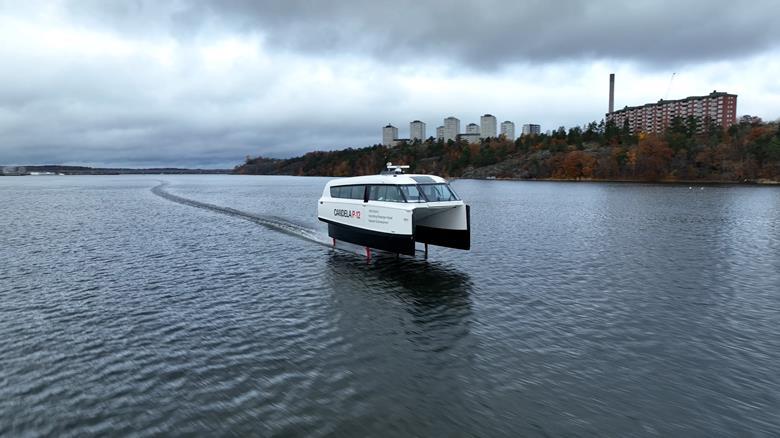Candela today announced it has closed the largest funding round in the company’s history, to expand production of its P-12 ferry. A key partner in the €24.5 million round is Groupe Beneteau.
Globally, waterborne transport emits 3% of global GHG emissions. Still, electrification has been slow to take off across leisure and commercial vessels, due to conventional ships and boats being inefficient at high speed.
Candela claims its computer-stabilized hydrofoil craft use 80% less energy than other ships and boats, attaining long range and high speed on battery power. At the same time, Candela says, they offer operators lower operational costs, incentivizing a transition to sustainable vessels.

“Our investment perfectly aligns with Groupe Beneteau‘s ecological transition objectives, scaling up innovative solutions for more sustainable boating and unparalleled experiences. Candela’s technology, enabling significantly more efficient electric vessels, will transform waterborne transport into its next sustainable phase”, says Bruno Thivoyon, CEO at Groupe Beneteau, the world’s largest boat manufacturer with a turnover of €1.46bn, 15 factories, 9 brands, and more than 8,000 yachts built annually.
“We couldn’t be more excited about having Groupe Beneteau on board. As the leading global boat company, their trust is a stamp of approval for our technology to transform waterborne transportation. We’re excited for the possibilities ahead,” says Gustav Hasselskog, Founder and CEO of Candela.
The new investment round will help to scale up production to meet demand for the recently launched Candela P-12, billed as the world’s first electric hydrofoil ferry. The P-12 starts a new chapter in waterborne transport, as it’s the first fast and long-range electric ferry on the market. Its efficient hydrofoil tech is claimed to cut lifetime emissions by 97.5% compared to diesel vessels, while simultaneously allowing operators to halve costs, according to Candela. Since it generates minimal wake, the P-12 has been granted exemptions from speed limits, as for example on its maiden route in Stockholm, where it from July will cut travel times in half compared to road transport and legacy diesel vessels.
The market for electric vessels is expected to be worth US$14.2bn in 2030 according to Fortune Business Insights, driven by strong national incentives to decarbonize shipping. In 2023, the European Union included maritime transport in its Emissions Trading System (ETS), and countries like Norway are pushing for zero-emission fjords, mandating electric ferries and boats.
“We’ve spent years developing the technological maturity, and now we’re fit for scaling to commercial vessels. As in any industry, the fastest-scaling company will dominate the market”, says Gustav Hasselskog.
Other backers in the round include longtime investors EQT Ventures, Ocean Zero LLC, and Kan Dela AB. The new investment brings total funding since Candela’s inception to over €70M.
“EQT Ventures has steadfastly backed Candela’s vision to accelerate the shift towards fossil fuel-free lakes and oceans since 2021. The launch of Candela’s P-12 vessels signifies a watershed moment in sustainable transport”, says Lars Jörnow, Partner at EQT Ventures.


.png)


